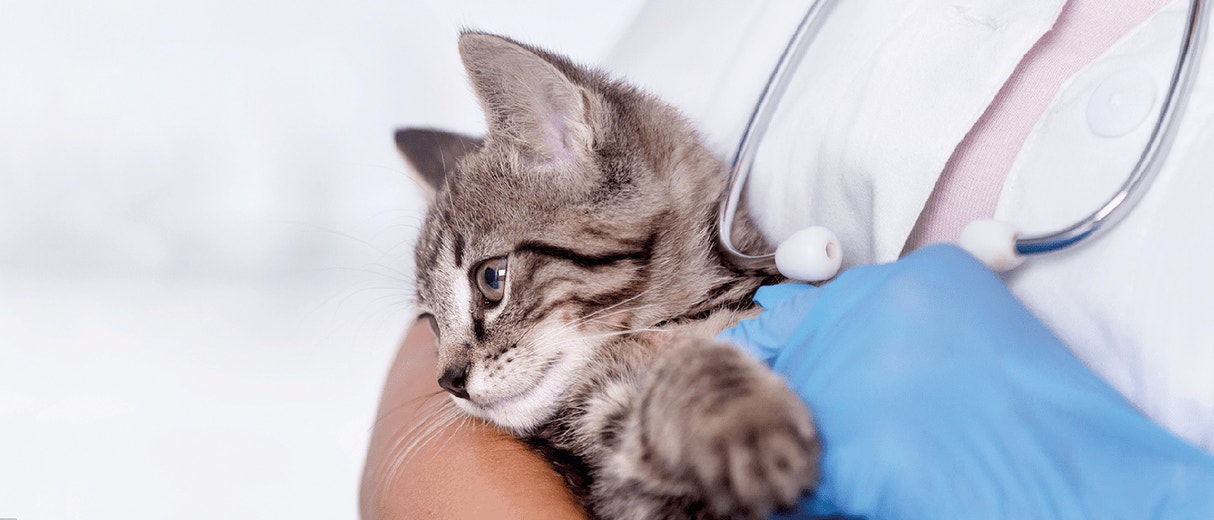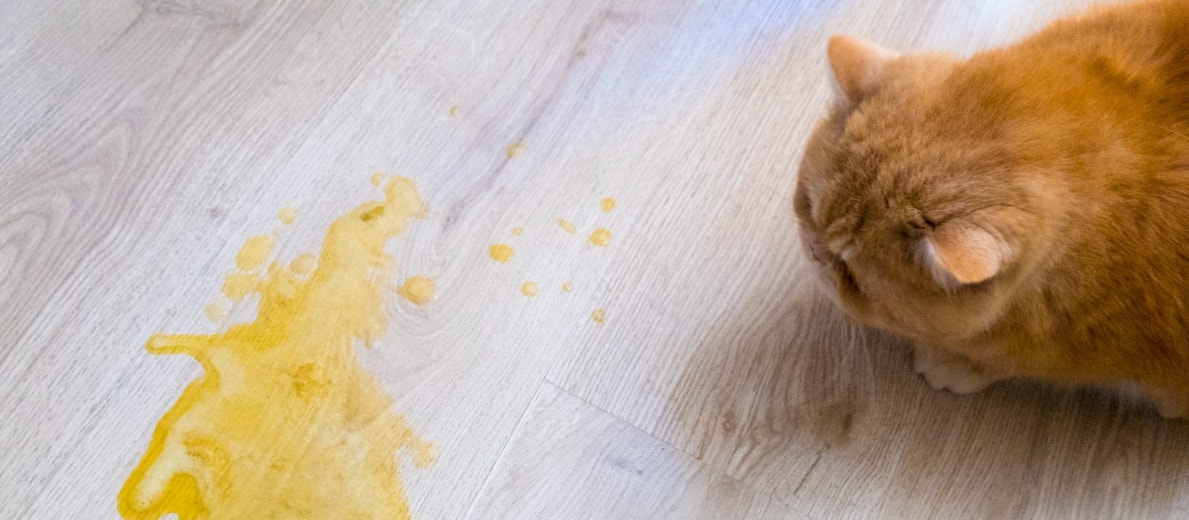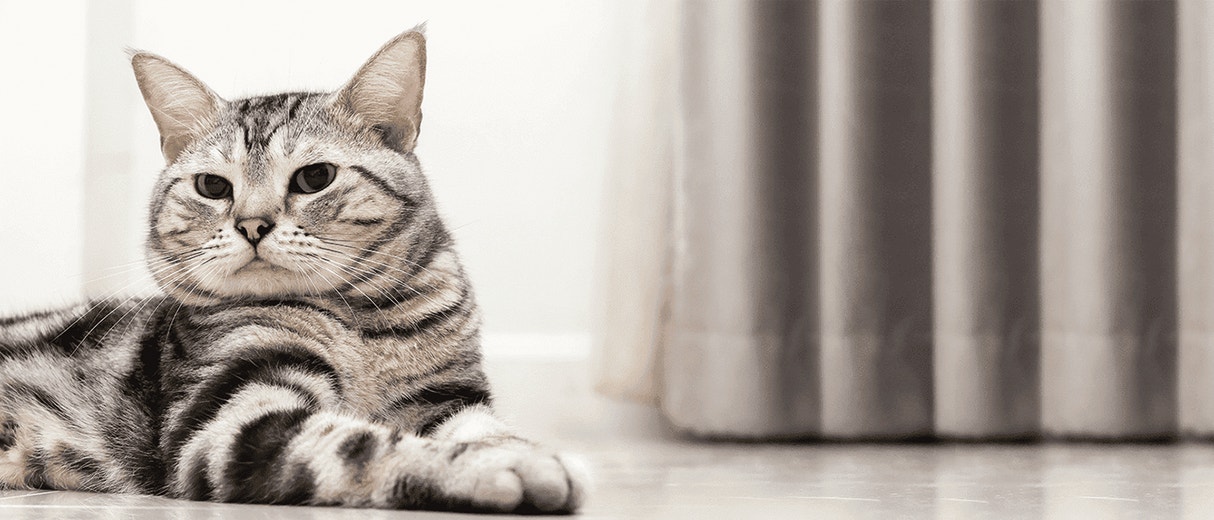
Common Health Issues In Senior Cats
As your cat gets older, you may find yourself taking her to the vet a little more often
Common Senior Cat- Health Problems
Being a cat parent is a rewarding experience. Witnessing the amazing journey of a feline growing up to be an elegant, graceful kitty is truly breathtaking. So, whether a fur baby is still in its kittenhood, or is nearing its senior years, cat parents never stop being in awe of their beloved furry friend.
As a responsible cat parent, it is a crucial task to monitor the general health of furries, especially if your kitty is in its senior years. While cats are extremely enduring and enjoy a long lifespan, senior cats are often known to experience physical discomfort and common ailments toward the advanced years of their life, which often can require expert attention for diagnosing any senior cat health problems.
This article discusses the common senior cat health issues and how you can help your little fur kiddo relieve their discomfort if there are any problems with older cats.
Healthy Cat Food For Senior Cat
Cats are most prominently known for their unmatched love and enthusiasm for food. As carnivores, not only do cats require a diet containing animal protein and fats, they also enjoy a wide palette with a variety in the texture and taste. Even in their advanced years, cats require sufficient animal protein and fat, minerals, and other vitamin supplements to stay healthy and avoid senior cat problems. And although senior cats often lose their ability to chew all foods that they are offered they still prefer a variety when it comes to their everyday meals.
So, most cat parents often look for healthy alternatives of cat food that is rich in flavours and can be safely offered to senior cats without upsetting their feline tummy. Offering them high-quality home cooked meals rich in proteins and minerals that does not contain high glucose in cats present in diabetic cat food, for avoiding diabetes in cats is an excellent option that also helps them in steering clear of older cat health problems caused by glucose for cats. Whiskas also has special cat food for senior cats that are easy on their tummies yet filled with all the nutrients required for aging felines.
Common Health Problems In Senior Cats
Being aware of the below-mentioned common illnesses in older cats can help you in being more informed and attentive about your feline buddy.
Arthritis
Although our precious feline friends are known to be incredibly athletic and agile, they can still develop feline arthritis at the advanced years of their life. Feline arthritis results in cat arthritis symptoms like painful inflammation around the joints of the body and can restrict movement in cats, making it vital to seek out proper cat arthritis treatment.
Cancer
Although cats are not quite as prone to the risks of cancer as dogs, they can still develop cancerous tumours in their senior years. Lymphoma, one of the more common cancers that affects cats, is also often triggered by the feline leukaemia virus.
Dental Disease
Dental diseases are not just a risk faced by cats at any stage of their lives, but are known to affect more cats in their twilight years. Dental diseases caused by plaque and tartar build-up are common in cats, and can result in bleeding gums, inflammations, and other dental infections.
Failing Vision
Although cats have excellent sight, their vision may undergo significant change throughout their lives, and can even lead to loss of vision in the advanced years due to older cat eye problems. Cataracts, where the lens of the eyes gradually cloud up, resulting in reduced visibility, is a frequently-observed symptom of aging in cats.
Hearing Loss
In the wild, cats significantly depend on their keen sense of hearing to hunt down prey, as well as evade predators. However, in their twilight years, cats are known to partially or completely lose their ability to hear.
Hyperthyroidism
Although the cases of hyperthyroidism in cats are rare, senior cats are comparatively open to the thyroid problems in cats than young and adult cats. Hyperthyroidism in cats can result in an excess production of hormones by the thyroid in cats, resulting in a hormonal imbalance, which can contribute to signs of hyperthyroidism in cats caused by the thyroid in cats, such as lethargy and fatigue, lowered appetite, obesity and constipation, irregular body temperature, and more.
Kidney Disease
Senior cats are also often exposed to the risks of old cat health issues such as renal diseases, which can also lead to chronic kidney failure, as well as other health disorders.
How Can I Help Keep My Senior Cat Healthy?
If you are worried about your cat heart and health, here are some tips on keeping your senior cat happy:
- Carefully brush their teeth on a regular basis to keep away plaque and tartar build-up, which might result in dental diseases.
- Elevate their mental health by showering them with affection, cat toys, and treats. It is also important for senior cats to avoid stressful environments.
- Good hygiene and grooming are essential for senior cats as they might lose their flexibility due to old age and arthritis. Grooming them regularly is helpful in bonding with them and to get rid of loose fur and matted hair.
- There are possibly few things that a cat loves as much as a comfy snooze in its favourite corner. Make sure your kitty has a comfortable bed and warm blanket to snuggle while asleep.
- Although cats love an outdoor adventure, if your precious furball is nearing its twilight years, it is wiser to keep your furry friend indoors. Not only does this help in avoiding the risks of pests like worms and ticks, but also keeps away environmental hazards in their senior years.
When To Visit Veterinarian For Help?
Senior cats need veterinarian attention more often, as it allows early detection of possible anomalies such as cat heart disease symptoms, diabetes in cats, arthritis in cats, cat heart worm, or hyperthyroidism in cats, and continue treatments like the hyperthyroidism in cats treatment, cat diabetes treatment, as required.
Hence, it is beneficial to get a professional consultation every six months, even if your feline munchkin is healthy and happy.
FAQs
-
What is the lifespan of an indoor cat?
Generally, an indoor cat’s lifespan can go from 10 - 15 years, however some also live up to the age of 20.
Do cats have fluffy fur?
Cats can have different fur depending on their breed. Cats like Maine Coon and Norwegian forest cat have longhaired cat coats and fluffier fur, shorthair cats have shorter, more dense fur, while the Sphynx cat is covered in a layer of fuzz.
Is cat fur used for coats?
Although the fur lining in cats is known as a cat coat because of its primary responsibility of regulating the body temperature and insulating against cold climates, cat fur is not really used for coats meant for humans.
Do cats have fur or hair?
Cats generally have two coats covering their cat's skin. The inner layer, known as the undercoat is comprised of fur, the outer layer, or the topcoat has long, visible hair. The length of the topcoat varies depending on the breed.
What is cat fur called?
Cats have a lining of fur over their cat's skin which not only helps protect their delicate skin, but also for insulation and protection against cold and harsh climates, and other environmental hazards. The fur lining in cat is known as a coat.
What is the body language of a cat?
In addition to vocal communication, cats are also reliant on cat body languages for expressing strong emotions, and a vast other range of expressions. The cat body language includes their posture, movement of tail, ears, and eyes.
What is a cat's positive body language?
The cat body language can be used to express a vast network of meaning, ranging from positive to negative. The positive cat body language includes relaxed and comfortable postures, slow blinking, tail held up high, hop-ups, rolling onto their back, and more.
How do you tell if a cat likes you?
Cats are extremely affectionate and loving, and rarely do they shy away from expressing their affection for their loved humans. Gentle headbutting, rubbing their cheeks against you, and slow blinking are telltale signs that a cat likes you.
How long does a cat live with hyperthyroidism?
Hyperthyroidism in cats is a worrisome health concern that usually develop in senior years and result in hormonal imbalances. Unless they are treated with cat thyroid medication or other hyperthyroidism in cats treatment, thyroid problem in cats can prove fatal.
What food is good for cats hearts health?
Cat parents often worry about cat heart health, especially in older cats. Food rich in protein and minerals are good for cats for maintaining adequate heart health and for getting rid of cat heart worms and other heart disease in cat.
What are the signs of heart problems in cats?
Most cats do not experience cat heart diseases until late in their life. In their old age, cat heart problems develop cat heart disease symptoms such as breathlessness, difficulty in physical activities, lethargy, and continuously elevated cat heart rate.
What are the warning signs in older cats?
Cats might show the tell-tale signs of old age in their twilight years, such as tooth decay and signs of tartar build-up, inability to jump as well as they did previously, lethargy, matted and tangled fur, and loss of appetite
Do elderly pets still require yearly vaccinations?
Yes, senior cats need to keep up with their annual vaccination as well, especially for heart worm prevention for cats. Yearly vaccinations can also help in eliminating the risks of fleas and ticks in addition to heart worms in cats that poses various risks to the cat heart.
Should I change my cat's diet as they age?
Depending on their age and breed, cats require changes in their diet as is necessitated by the cat’s age. Your furry’s diet must also be changed to include less glucose for cats, high-quality protein and minerals, or diabetic cat food that avoid the use of glucose for cats.
What are the most common medical problems in older cats?
Older cats are often prone to the risks of common diseases in older cats such as arthritis in cats, failing vision and hearing loss, periodontal diseases, diabetes in cats, cat heart worm, heart disease in cat, kidney failures, and even cancer.
See More Articles Like This




